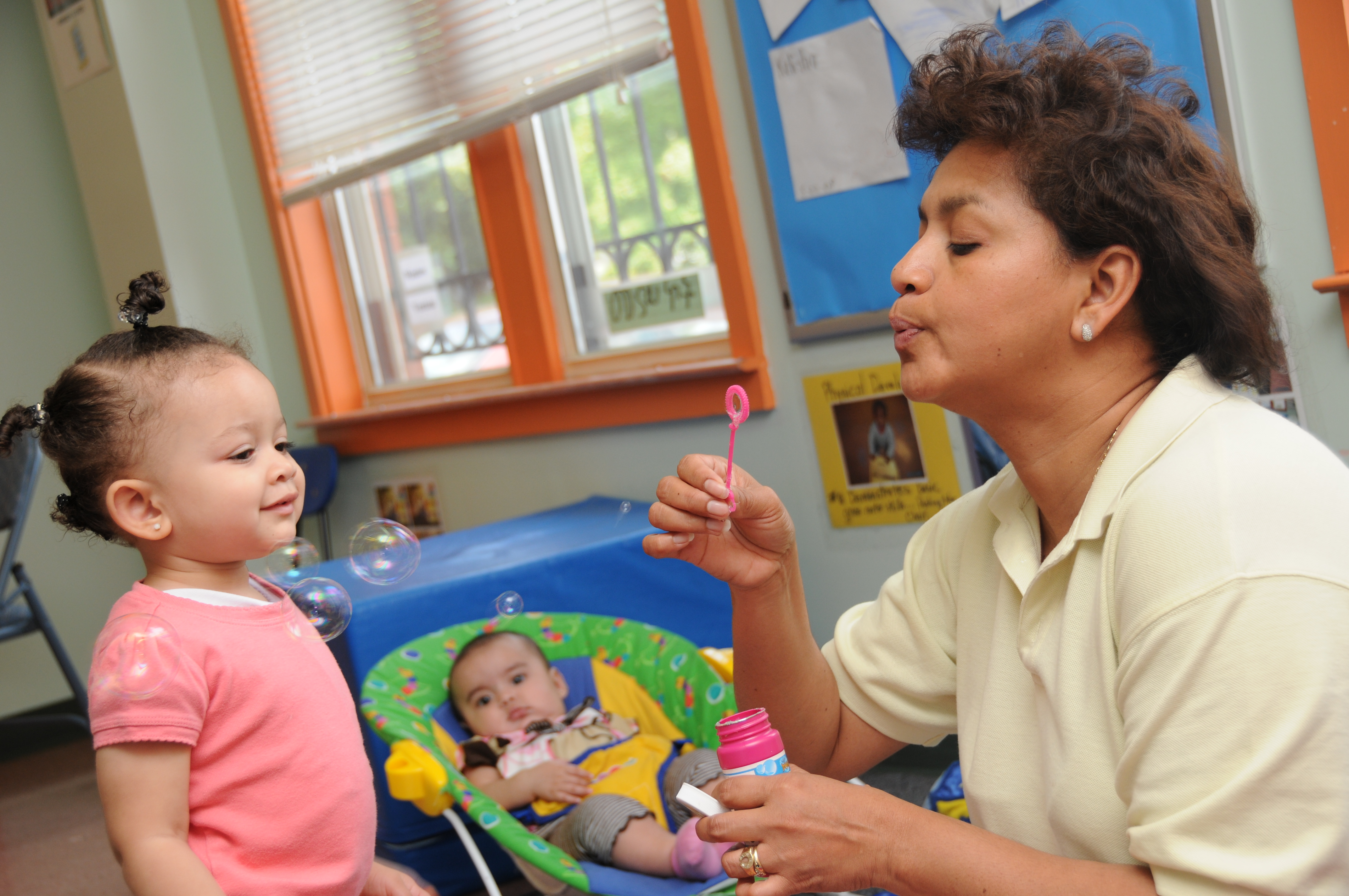Just as early childhood education moves into the national spotlight with President Obama’s 2013 State of the Union address, researchers at the University of Virginia’s Center for Advanced Study of Teaching and Learning in the Curry School of Education have received a $1.5 million grant from the U.S. Department of Education’s Institute for Education Sciences to develop a six-month, online course for teachers working with toddlers.
Currently, there is limited professional development support for early care teachers, and almost none of it focuses on what studies show matters most – supportive teacher-child interactions.
“We now know more about what effective interactions in early care look like and professional development mechanisms to support them,” said Jennifer LoCasale-Crouch, a research assistant professor at CASTL, and the principal investigator on the project. “In this online course, we will target the specific teacher-child interactions that support toddlers’ emerging relational, regulatory and language skills.”
LoCasale-Crouch will be working with co-investigators including Bridget Hamre, research associate professor and associate director of CASTL; Kathy Neesen, technology director at CASTL; Robert Pianta, dean of U.Va.’s Curry School of Education and founding director of CASTL; and Jessica Whittaker, research assistant professor.
The online course, which begins development this fall and which will be ready for the first pilot next summer, will provide early care teachers with targeted strategies and resources that balance between the classroom and individual children.
“Oftentimes, interventions focus on teachers working with individual children or overall classroom interactions, but rarely a combination of both,” LoCasale-Crouch said. “Our goal is to support teachers in being more intentional in their interactions to both groups of children and an individual child.”
Researchers plan to use emerging tablet technology so teachers have helpful resources at their fingertips, and in the classroom, at the very moments they need them.
One area of emphasis includes interactions that support young children’s language development.
“Teachers know how important language development is in supporting children’s overall development, but it also serves as a key skill in reducing challenging behaviors,” LoCasale-Crouch said. “As children learn words to express themselves, their frustration goes down.”
For example, the course will work with teachers to provide support to children’s classroom-wide language development through back-and forth-conversations , while also providing more individual support to specific children who might need new vocabulary words to express their feelings. Thus, through this work, a set of resources will become available to meet both the classroom and individual needs of toddler teachers.
As the online course and supports are developed over the next three years, CASTL will pilot this with both Early Head Start programs and child care providers in Virginia and Arizona.
Foundational to this new project is the toddler version of the Classroom Assessment Scoring System, an observational system that assesses specific interactions for the developmental period of 15 to 36 months.
— by Leslie M. Booren
Media Contact
Article Information
September 24, 2013
/content/uva-researchers-receive-15-million-grant-support-teachers-toddlers

